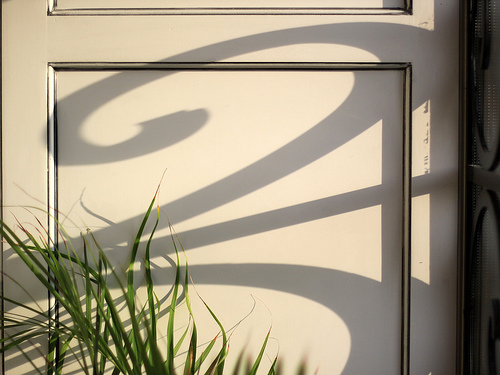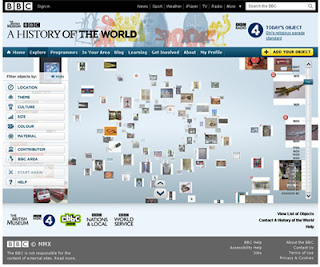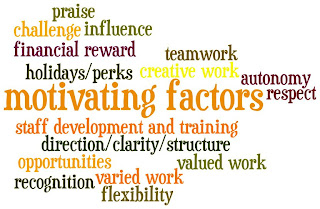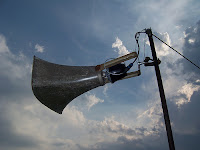I have been meaning to write my own contribution to the
Library Routes Project ever since I heard about it (which was, admittedly, only a couple of months ago). I'd been putting it off because I wanted to have a proper read of some other people's (not least
Emma's and
Niamh's) before I committed my story to the screen. I have, however, received a request to write about my route into special collections work, so I'm forging ahead now, feeling somewhat under-prepared.
Beginnings
Yes, I was the child who spent a lot of her school days organising the books in the story area, and I'm the annoying adult who is forever jumping up from the dinner table to check dictionaries and encyclopedias for the answers to obscure queries. But it took me a while to realise that librarianship was for me.
After a school career in which many subjects interested me, I took a BA in music with no fixed idea of what I would do with it afterwards (my only stipulations being that music teaching *wouldn't* be for me), and by the Christmas of my third year I was starting to feel really quite alarmed about the vagueness of my future.
Revelation
For my BA I chose to study a few papers about the transcription of medieval music, which included consideration of the material texts through which the corpus is transmitted to us. In plain English that means we occasionally got to look at real medieval manuscripts, and spent a good deal of time peering at photocopies of facsimiles of them. I was hooked - palaeography enchanted me, transcription absorbed me, codicology fascinated me...
But how to get more of it? One answer would have been a career in academia, but that seemed like a lot of hard work and rather an insecure way to earn a crust. I decided instead that a career *looking after* these wonderful old tomes was a better choice of activity. And, I reasoned, I like organising information, and I like finding things out for people, so maybe librarianship was a good choice for me.
*
First steps
Having hit upon libraries I tried to get as much work experience as I could fit in around sitting my finals. I volunteered at my local home library in the Christmas and Easter vacations, and after the exams finished I spent a week helping with the Faculty's annual stock check. I applied for some
graduate trainee positions in Cambridge, and was interviewed for some, but not selected for any. I suspect a lack of experience and awareness of current library issues may not have helped my applications.
My first proper library job was as a book fetcher at the
University Library. Book fetchers collect readers' requests for closed-access materials and scurry around the behind-the-scenes maze to find it and bring it to the reading rooms. It's not a glamorous job, it's not very well regarded by the other library staff, and it can be real hard physical work on the busy days fetching bound newspapers from the 1930s. But working in a large library you do get to see, out of your peripheral vision at least, lots of different types of library work, and to learn how they all fit together. I was lucky enough to be stationed in the
manuscripts department for some of my term, which gave invaluable experience of handling rare material and of customer service helping readers interpret myraid catalogues and listings.
I applied to, and got a place on the
MA course in Library and Information Studies at UCL, because it had
historical bibliography and
manuscripts modules, and because there was the option to study part-time, which I intended to do while continuing to work in Cambridge.
Onwards and Upwards
In August 2006, after a year at the UL, and just about to start the MA course, I was appointed to a library assistant post for a collection of theological colleges in Cambridge. This role gave me experience of many different areas of library work including circulation, cataloguing and classification, user training, project work. There was also the opportunity to work on listing a small collection of early 19th-century letters held by one of the colleges. Although relatively few institutions have dedicated special collections staff, very many do seem to have some special collections hidden away somewhere or other.
Today
I hadn't intended to change jobs again until after I'd completed my MA, but in late 2007 I saw a job advertised that really appealed to me. I nearly didn't apply: I thought it wanted skills and experience that I didn't yet have. A friend scoffed when I suggested letting it pass, and so I crafted my CV and application to make the most of the special collections and project experience that I already had, and made by bid to become Hoyle Project Associate. Wonder of wonders, my application was successful, and I was appointed as the person responsible for bring the Hoyle Project into being. (The moral of this tale is to always have a go, even if you think you won't get it.)
The
Hoyle Project is a Heritage-Lottery-funded, three-year project to catalogue and make accessible the papers of the astrophysicist and science-fiction author Fred Hoyle (1915-2001), which were given to the College in 2002. The post requires archival cataloguing skills (using a locally-developed database), and a whole gamut of outreach, public engagement, communication, curatorial, imaginative, and project-management skills. As part of the role, I have organised a number of
public events,
hands-on activities for families and schools,
online exhibitions, and special interest group visits, all more and less explicitly linked to Fred Hoyle. I've also helped with the day-today running of a
historic library and reading room. One of the joys has been uncovering items from elsewhere in the special collections that can be drawn together to illustrate particular topics (generally the history of astronomy), and also, hopefully, inspiring colleagues to continue with the library's programme of
outreach work, including the subject areas I've been working in, after the end of the project.
It's a great job to have (I only wish it weren't fixed-term), and still, 30 months in, I'm so pleased to have it. The only downside is that far more could be done than I'll ever have time for.
Future
The Project is due to end at the end of March 2011, so I will soon be looking for a new post. I'd definitely like, if possible, to stay in a special collections and/or outreach role, although I fear that there's no space for being fussy in the current climate. In an effort to evaluate my skills, and to develop them further, I'm currently working towards
Chartership. As well as obtaining a further professional qualification, I hope that this will help the job hunt by improving my ability to analyse and match my skills to the requirements of advertised post, and just to have more experience to make me suitable for roles.
Conclusion
Five years ago I had very little idea where a career might take me. I hoped that it would involve special collections in some way, but I was, frankly, scared of what the modern world might be bringing with it. I would never have thought that I'd been working in outreach (sometime with school children, no less!), nevermind that I'd be enjoying it and looking to continue in the same area. Now I can't imagine working in a special collections role that doesn't involve some element of outreach work. What, after all, is the point of having lovely things if no-one ever gets to know of or see them?
*I'm also fond of sensible shoes, tweed, have short hair, look grumpy, wear glasses and like cardigans, but I'm trying to shy away from stereotypes here.
ETA 11 May 2012: You might also be interested in this slideshow, A Special Collections Career Path, and this prezi (or pdf), Special Collections Librarianship: A Brief Map of the Field.

















